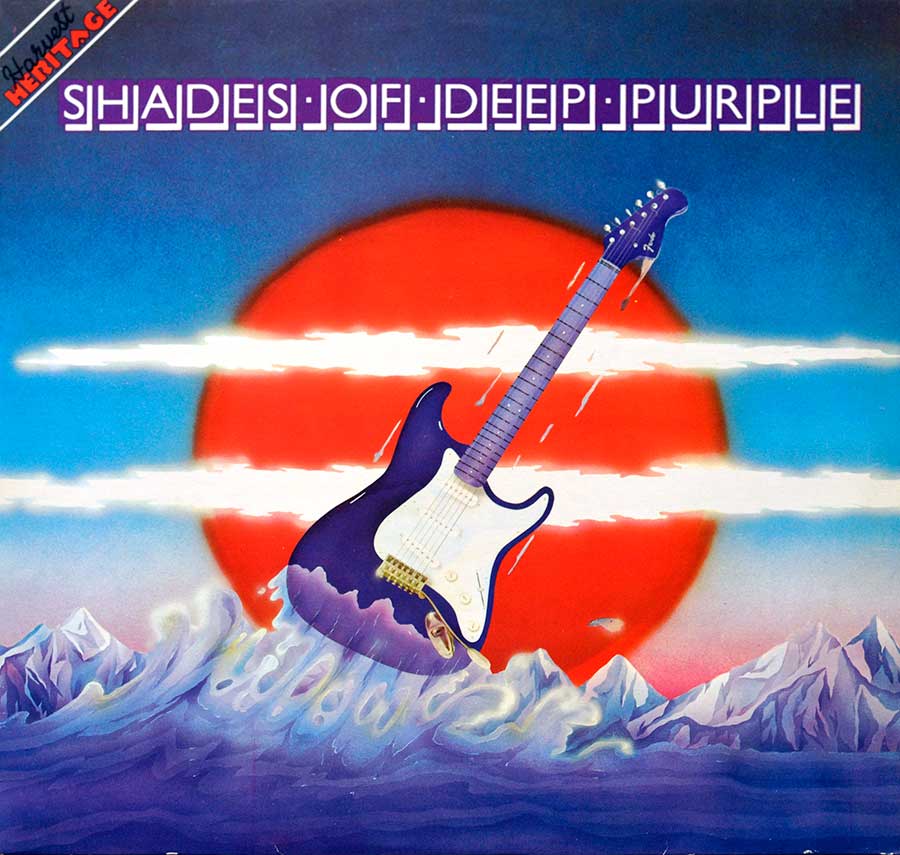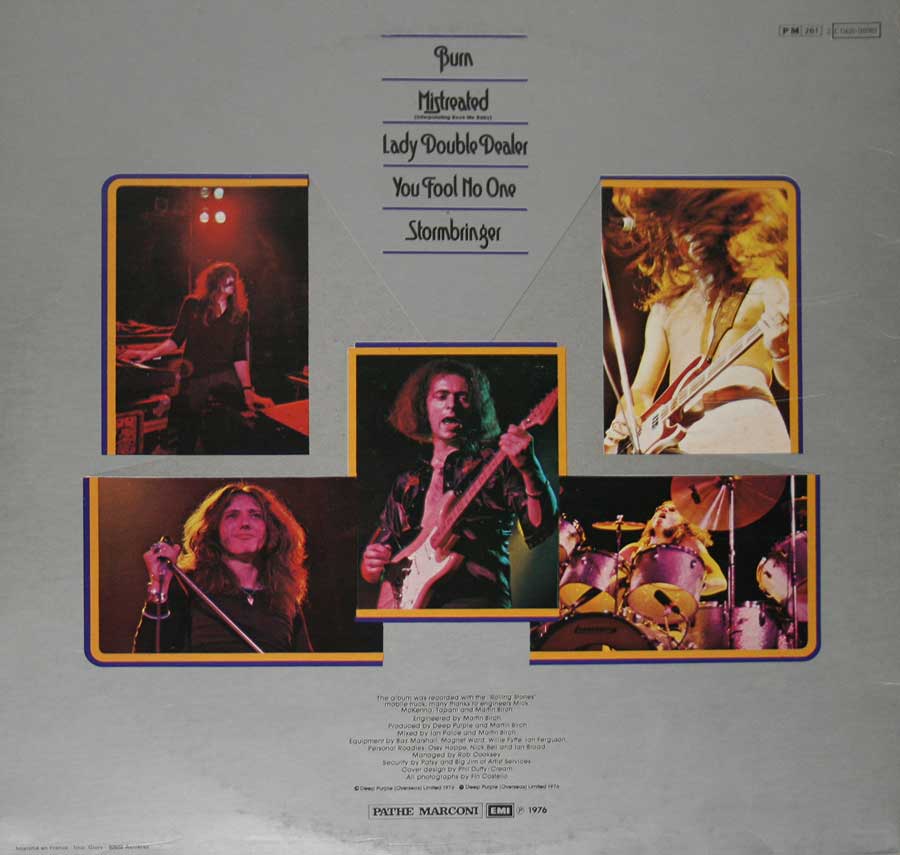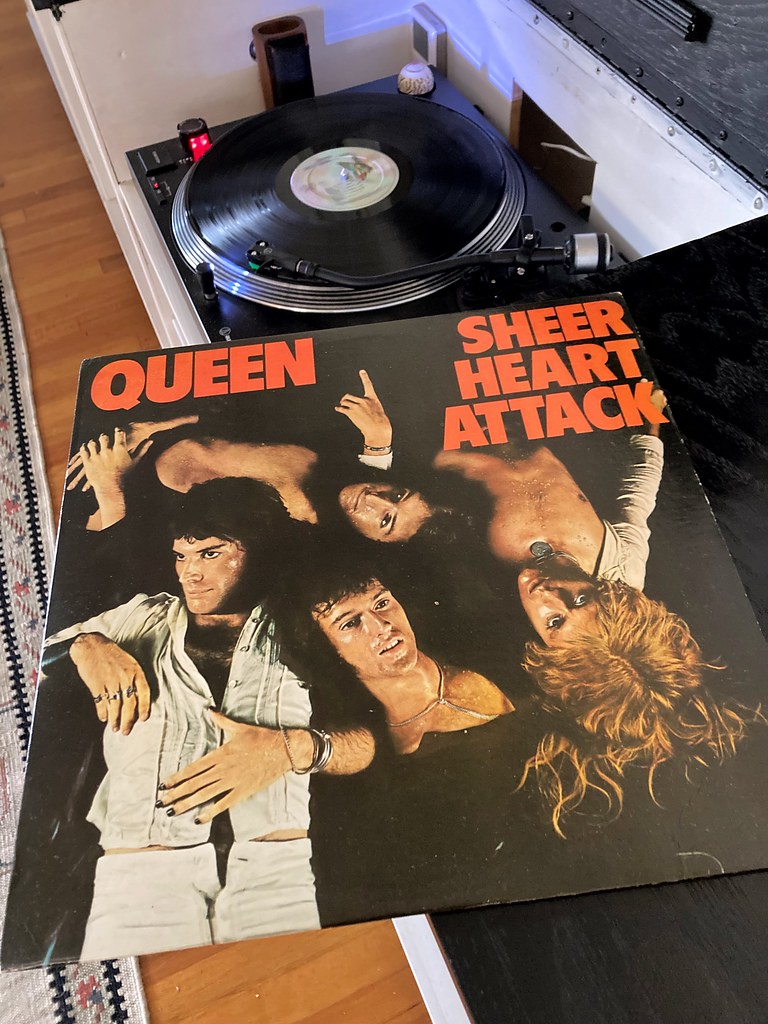
Freddie Mercury, the flamboyant frontman of Queen, was a supernova in the firmament of rock music, a self-proclaimed “natural-born star” whose confidence in his extraordinary talent was as legendary as his vocal range. His stage presence was unparalleled, his charisma infectious, and his artistic vision uncompromising. Yet, beneath the layers of theatrical bravado and rock-god swagger, there existed a profound and singular admiration for one artist who stood above all others in his estimation: John Lennon.
For Mercury, an artist not known for modesty and who considered only a handful of musicians as potential rivals to his distinct brilliance, this acknowledgment was exceptional. It spoke volumes about Lennon’s indelible impact, not just on the broader musical landscape, but on the personal creative psyche of a man who would become one of the greatest performers of all time. Mercury’s reverence for Lennon wasn’t just about musical prowess; it was about something far deeper, touching on character, uniqueness, and a magic he believed no one else possessed.
This article delves into the intricate layers of Freddie Mercury’s feelings towards John Lennon, piecing together his candid admissions, profound tributes, and the undeniable influence Lennon had on Queen’s iconic frontman. We explore the genesis of this admiration, the specific qualities Mercury revered, and how Lennon’s shadow loomed large in Mercury’s artistic and personal worldview, creating an unspoken bond between two titans whose paths, tragically, never directly crossed.

1. **Mercury’s Singular Idolization: “The Only One”**Freddie Mercury, a man who “rubbed shoulders and collaborated with a number of superstars during his career,” including luminaries like David Bowie and Montserrat Caballé, openly admitted to one significant regret. When asked in a 1984 interview who he would most like to meet, living or dead, his answer was unequivocal and deeply personal. “The only person I wish I had met was John Lennon,” he stated, adding a poignant inflection that conveyed the depth of his sentiment.
This confession was not a casual remark but a heartfelt declaration from an artist who rarely placed anyone above himself. Mercury’s choice of Lennon as “the only one” he idolized underscores a profound personal connection, a sense of loss for an encounter that never materialized. It highlights Lennon’s unique position in Mercury’s pantheon of heroes, a figure whose presence he yearned for beyond mere professional respect, an enduring wistfulness for a meeting that was never to be.
In a later interview conducted in Japan in 1985, Mercury reiterated this sentiment, emphasizing the unwavering nature of his admiration. He told MTV in a video interview in 1984 that Lennon “is the one that I did idolise and I just thought he was a very beautiful human being and I’m sad to say that I didn’t get to meet him. He’s the only one.” This consistent messaging consistently painted Lennon as a figure of immense personal significance, a beacon of artistry and humanity that transcended the typical celebrity admiration, cementing Lennon’s singular place in Mercury’s heart.
This singular focus on Lennon, amidst a career filled with encounters with other musical giants, offers a rare glimpse into Mercury’s inner world and his profound artistic and personal values. It suggests a yearning for a connection with a kindred spirit, an acknowledgment that some figures, even from afar, resonate with an intensity that few others can match, leaving an unfillable void when a meeting proves impossible.

2. **Lennon as a “Beautiful Human Being”: Beyond the Music**Mercury’s admiration for John Lennon extended far beyond his groundbreaking musical contributions. When discussing his unfulfilled wish to meet Lennon, Mercury didn’t just praise his songwriting or vocal talent; he spoke to Lennon’s very essence. He revealed, “‘cause he’s the one that I did idolise, and I just thought that he was a very beautiful human being.” This personal assessment adds a crucial dimension to Mercury’s reverence, moving beyond the superficial glamour of rock stardom.
To be called a “beautiful human being” by someone as discerning and often critical as Freddie Mercury suggests a recognition of Lennon’s intrinsic character and spirit. It speaks to an appreciation for Lennon’s authenticity, his outspokenness, and his commitment to ideals that resonated deeply with Mercury, revealing a profound respect for Lennon as a complete individual.
This emphasis on Lennon’s humanity paints a picture of Mercury seeing Lennon as a holistic artist and person, not just a performer. It implies an understanding and respect for Lennon’s personal journey, his struggles, and his distinctive way of navigating the world, captivating Mercury not just through his melodies but through his very being and philosophy.

3. **Early Beatlemania and Lennon’s Emergence: A Formative Influence**Born in 1946, Freddie Mercury, then known as Farrokh Bulsara, was at a pivotal age when The Beatles exploded onto the global music scene in the early 1960s. His arrival in Britain in 1964, “departing his war-affected homeland,” coincided perfectly with the apex of Beatlemania, placing him directly in the crucible of a cultural revolution. Music, for the young immigrant, served as a “sanctuary,” and he “was absorbing their creations avidly.”
The Beatles’ unparalleled success and innovative sound provided a powerful backdrop for Mercury’s own developing musical sensibilities. As he embraced “the rock and roll-centred way of life,” he was witness to, and profoundly influenced by, the seismic shift The Beatles brought to popular music. It was during this formative period that the seeds of his admiration for John Lennon were sown, taking root as he processed the band’s dynamic output and their immense cultural footprint.
Amidst the collective brilliance of the Fab Four, Mercury always found himself drawn specifically to Lennon. While “everyone had their personal favourite,” for Mercury, “John Lennon occupied a unique and elevated position.” This early and consistent preference shaped his musical understanding, offering a blueprint of artistic integrity and creative daring that would subtly, and sometimes overtly, echo in his own legendary work with Queen.

4. **Lennon: “Larger Than Life” and “Absolute Genius”: A Titan’s Perspective**Freddie Mercury, an artist whose own stage persona was often described as larger than life, reserved the highest accolades for John Lennon. He frequently referred to Lennon as “larger than life” and an “absolute genius.” These aren’t merely compliments; they are declarations of profound artistic reverence from one titan to another, emphasizing the immense scale of Lennon’s impact and creative capacity that resonated deeply with Mercury’s own ambitions.
The term “absolute genius” from Mercury carries significant weight, considering his own unparalleled musical contributions to Queen, including writing masterpieces like “Bohemian Rhapsody” and “We Are the Champions.” For Mercury to attribute such a descriptor to Lennon speaks to a recognition of a truly unique and extraordinary creative mind, a force that transcended conventional musical boundaries and left an indelible mark on its era.
This perspective positions Lennon not just as a successful musician, but as an almost mythical figure, whose influence extended beyond his songs into the very fabric of cultural innovation and social commentary. Mercury’s choice of words highlights Lennon’s pioneering spirit and his ability to craft art that was both deeply personal and universally resonant, a quality Mercury himself would later embody in his own legendary career and public persona.

5. **A Preference for Lennon’s Artistry: Even in Early Beatles**Even in the nascent stages of The Beatles’ career, when their collective synergy was undeniable, Freddie Mercury’s discerning ear gravitated specifically towards John Lennon’s contributions. He candidly revealed, “Even at a very early stage when they were The Beatles, I always preferred John Lennon’s things.” This preference wasn’t a casual aside but a significant indicator of Mercury’s artistic leanings and critical appreciation for a distinctive musical voice.
Mercury further elaborated, “I don’t know why. He just had that magic…” This admission speaks to the intangible, almost mystical quality that Lennon possessed, a creative spark that captivated Mercury irrespective of specific songs or arrangements. It suggests an innate understanding and deep connection to Lennon’s raw, often more introspective, and lyrically profound approach, standing apart from other contemporary artists.
This early preference illustrates that Mercury recognized Lennon’s distinct voice and vision long before he himself became a global superstar. It underscores a consistent admiration that was rooted in deep artistic resonance, highlighting a discerning ear that could pinpoint the unique essence of Lennon’s songwriting and performance from the very beginning of The Beatles’ legendary journey and lasting impact.

6. **Refusal to Self-Compare: Lennon as “The Greatest”**Despite his own undeniable genius and monumental success, Freddie Mercury vehemently resisted any attempt to compare himself to John Lennon. His humility in this regard was striking, particularly for an artist known for his vibrant confidence. “To be honest, I would never like to put myself on a par with John Lennon at all because he was the greatest, as far as I’m concerned,” Mercury declared with absolute conviction.
This statement is not a dismissal of his own talent but an elevation of Lennon to an almost untouchable status. Mercury genuinely believed Lennon occupied a higher echelon of artistry, a level of greatness that was incomparable. This unwavering conviction speaks volumes about the depth of his reverence, placing Lennon in a category all his own, beyond the realm of competition or even respectful artistic parallel.
He reiterated this stance in interviews, consistently asserting Lennon’s supreme position. For Mercury, it wasn’t a matter of false modesty but a sincere acknowledgment of a unique creative force. It reflected a profound respect for Lennon’s legacy and influence, framing him as a benchmark against which Mercury felt no artist, including himself, could truly be measured or even approached.

7. **Lennon’s “Unique, A One-Off” Status: An Irreplaceable Creative Force**Freddie Mercury’s description of John Lennon as “unique, a one-off, and that’s the way it is” encapsulates his conviction that Lennon was an irreplaceable creative force. This designation goes beyond mere praise; it attributes to Lennon an essential and singular quality that cannot be replicated or superseded. For Mercury, Lennon’s artistry was not just exceptional but fundamentally distinct and unparalleled in the annals of music history.
This perspective implies that Lennon’s contributions weren’t just about individual songs or albums, but about his entire approach to music, art, and life. His distinct voice, his lyrical honesty, and his groundbreaking experimentation combined to form an inimitable persona and output. Mercury saw this as an undeniable truth, stating, “I don’t think anybody should because John Lennon was unique, a one-off, and that’s the way it is.”
Such an affirmation from Mercury, known for his own trailblazing originality, further cements Lennon’s status as a singular icon. It highlights the profound respect Mercury held for the authenticity and individuality that defined Lennon’s career, acknowledging that some artists carve out a niche so specific and powerful that they truly stand alone in history, leaving a legacy that remains perpetually influential and unmatched.

8. **The Shock and Devastation of Lennon’s Assassination**The musical world, and indeed the entire globe, plunged into profound mourning on December 8, 1980, with the devastating news of John Lennon’s assassination in New York City. For Freddie Mercury, an artist who held Lennon in an almost sacred regard, this tragedy struck with an especially heavy blow, marking the abrupt end of a possibility he had long yearned for. His immediate reaction was one of utter disbelief and profound sorrow, cutting through the usual rock star composure. He confessed, “When I heard that Lennon was dead, I was shocked and dumbfounded.”
This candid admission from Mercury underscores the immense personal and emotional impact of Lennon’s passing, revealing the true depth of his admiration for “the greatest” of musical figures. It was far more than the death of a revered colleague; it represented the loss of a “beautiful human being,” a singular talent whose unique “magic” Mercury had recognized and cherished. The sudden, violent nature of the event left him, like millions across the planet, grappling with an unshakeable sense of disbelief and an enduring sadness for a life unjustly extinguished.
Such a raw, unvarnished emotional response from a personality as outwardly confident and theatrical as Mercury speaks volumes about Lennon’s irreplaceable standing in his personal pantheon. It offered a rare glimpse behind the flamboyant stage persona, revealing a tender vulnerability in the man. The tragedy solidified an unfillable void, reinforcing the poignant reality of an unfulfilled wish to meet “the only one” he truly idolized, cementing Lennon’s enduring presence in his inner artistic world.

9. **Queen’s Immediate Live Tribute: “Imagine” at Wembley**In a remarkably swift and deeply poignant act of remembrance, Queen found themselves in London on that somber December 8, 1980, the very night John Lennon was tragically murdered thousands of miles away in New York. With the weight of the world’s grief settling heavily upon them, the band made an immediate and heartfelt decision to honor the fallen icon. They spontaneously prepared and rehearsed a cover of Lennon’s timeless anthem, “Imagine,” destined for their Wembley Arena show the very next evening. It was a raw, spontaneous outpouring of collective grief and profound artistic respect.
This emotionally charged performance, meticulously documented in Mark Blake’s authoritative account, “Is This the Real Life? The Untold Story of Queen,” was vividly described as “heartfelt but imperfect.” Amidst the overwhelming sorrow and rushed preparation, chords and lyrics were fumbled before the song reached its conclusion, a palpable testament to the suddenness of the tribute and the profound shock reverberating through the band, especially Mercury. Yet, it was precisely this rawness that underscored the genuine emotion, rendering it all the more impactful for those fortunate enough to witness it.
This impromptu decision to perform “Imagine” spoke volumes about the immediate and visceral impact of Lennon’s death on Queen and its charismatic leader. It transcended a mere musical cover; it became a powerful, communal moment of mourning and solidarity, a public lament from one rock legend to acknowledge the passing of another. The sheer urgency and unadulterated emotion that permeated that Wembley performance cemented it as a significant, albeit deeply somber, chapter in Queen’s illustrious live history, echoing Mercury’s personal reverence.

10. **Continuing the Tribute: The 1980 Tour Performances**The poignant Wembley Arena tribute to John Lennon was, by no means, an isolated act; Queen conscientiously carried the solemn torch of remembrance throughout the remaining dates of their extensive 1980 tour. Just a mere few days after that initial, emotionally charged performance in London, Freddie Mercury and the band once again paid their profound respects to the departed Beatle by including their rendition of “Imagine” in their setlist, this time in Frankfurt, Germany. This consistent inclusion across multiple venues demonstrated a sustained and unwavering commitment to honoring an artist whom Mercury so deeply admired.
For modern audiences, a bootleg recording of that Frankfurt performance has since surfaced, readily available on platforms like YouTube, offering a rare opportunity to experience this powerful, albeit still visibly emotional, rendition. According to reports from Smooth Radio, Queen consciously made the profound decision to retain “Imagine” within their playlist for the entirety of their demanding 1980 tour. This transformed what began as a spontaneous act of mourning into a sustained public tribute, ensuring that Lennon’s powerful spirit continued to resonate deeply through their electrifying live shows, reaching countless fans.
This remarkable dedication to performing “Imagine” night after night vividly showcased Mercury’s profound and deeply personal connection to Lennon. It served as a powerful, visible manifestation of his ongoing grief and unwavering respect, effectively transforming Queen’s high-energy concerts into a shared, cathartic space for collective remembrance. Through these consistent performances, Mercury ensured that Lennon’s monumental legacy was not only acknowledged but actively and passionately celebrated by one of the biggest and most influential bands in the world.

11. **Crafting a Heartfelt Elegy: “Life is Real (Song For Lennon)”**Beyond the immediate, visceral impact of live tributes, Freddie Mercury channeled his intense personal grief and profound admiration for John Lennon into a more enduring and deeply artistic expression: the hauntingly beautiful song, “Life is Real (Song For Lennon).” This poignant track, prominently featured on Queen’s 1982 album `Hot Space`, stands as a profoundly personal elegy, offering a rare and intimate glimpse into Mercury’s often-hidden, more vulnerable side as both a songwriter and performer. It was a departure from his usual dramatic flair, born from genuine sorrow.
Within the soul-baring lyrics of “Life is Real,” Mercury bravely “bared his emotions and honoured his idol,” allowing a level of personal vulnerability that was uncharacteristic for the famously private frontman. Gold Radio UK specifically noted that Mercury took the “unusual (for Queen) step of coming in with the lyrics fully formed before collaborating with the rest of Queen on the music,” a detail that profoundly highlights the intensely personal and singular vision driving this heartfelt tribute. This was not a collaborative effort born of studio sessions but a fully formed lyrical statement from Mercury’s core.
This unique compositional approach powerfully underscores the sheer depth of Mercury’s emotional response to Lennon’s passing. The primary motivation behind the song was not merely to offer a direct commentary on Lennon’s specific artistic output, but rather to serve as Mercury’s deeply personal process of “coming to terms with the fact that Lennon was gone for good.” The song thus became a vital, cathartic vehicle for Mercury to navigate his overwhelming feelings of loss and profound respect for an artist he considered utterly irreplaceable.

12. **The Unveiling of “Life is Real” on ‘Hot Space’**”Life is Real (Song For Lennon)” found its definitive home on Queen’s tenth studio album, `Hot Space`, which was officially released on May 21, 1982. This particular album marked a significant stylistic departure for the band, recognized for its eclectic and experimental sound that leaned heavily into funk and disco influences, moving away from Queen’s quintessential hard rock roots. While `Hot Space` garnered a mixed critical reception at the time of its release and in retrospective reviews, Mercury’s deeply personal tribute to Lennon powerfully shone through as a poignant and undeniable standout track.
The “entire sound of the track was based on Lennon’s styles and resembled his music,” a conscious and deliberate stylistic choice by Mercury to further amplify his honor for his idol. This thoughtful emulation, coupled with Mercury’s exceptionally earnest and heartfelt lyrics, collaboratively generated a powerful sense of continuity and profound reverence for Lennon’s distinctive musical fingerprint. Fans could undoubtedly sense and connect with “the special connection between the two musicians,” a fact vividly evidenced by the track’s enduring popularity and the millions of views garnered by its official lyrics video on YouTube today.
“Life is Real” therefore serves as a timeless and poignant reminder of John Lennon’s pervasive and lasting influence, even on artists as creatively distinct and trailblazing as Freddie Mercury. This specific track transcended conventional critical reception, purely due to its genuine emotional core and its unambiguous dedication. It stands as a powerful testament to the enduring impact of one musical legend on another, vividly showcasing Mercury’s profound respect for the Beatle’s distinctive lyrical and melodic approach, cementing its unique place in Queen’s discography.

13. **Lennon’s Unforeseen Acknowledgment of Queen**While Freddie Mercury’s profound admiration for John Lennon was a widely known and frequently expressed sentiment, a fascinating and often overlooked layer of mutual respect adds remarkable depth to their otherwise indirect artistic relationship. In a truly poignant moment during his final interview in 1980, John Lennon himself offered an unexpected and significant endorsement of Queen, subtly demonstrating that the admiration flowed, at least in part, in both directions. It was a testament to Queen’s burgeoning influence and a powerful, albeit unforeseen, moment of recognition from one titan to another.
Speaking with `Rolling Stone` just weeks before his tragic passing, Lennon, ever the iconoclast, gently urged his loyal fanbase to broaden their musical horizons beyond the enduring legacy of The Beatles. He famously and presciently advised, “Listen to the Beatles records, but dig Queen or Clash or whatever is going on now.” This remarkable quote, delivered with characteristic insight, serves as a powerful testament to Queen’s contemporary relevance and their significant impact on the popular music landscape, even in the discerning eyes of a figure as seminal as Lennon. It showed he was not only tuned into the current music scene but actively recognized and appreciated emerging, innovative talent.
Further illustrating this subtle yet significant connection, an interview with `Spin Magazine` back in 1975 revealed an even more personal link: Lennon’s own son, Julian, was a “big fan of Queen.” Lennon recounted with a touch of paternal pride, “He likes Queen, though I haven’t heard them yet. He turns me on to music. I call him and he says, ‘Have you heard Queen?'” This charming personal anecdote strongly suggests that even through the unfiltered enthusiasm of his children, Lennon was exposed to, and potentially influenced by, Queen’s rapidly ascending sound.

14. **A Shared Legacy of Unmet Admiration and Enduring Influence**The compelling narrative of Freddie Mercury and John Lennon is ultimately one of profound, deeply ingrained, and largely unfulfilled admiration that indelibly shaped the individual legacies of two of rock music’s most iconic figures. Mercury’s unwavering praise for Lennon’s artistry never waned, holding him aloft as a transcendent “symbol of authenticity, creativity, and rebellion” right until his own untimely death in 1991. This consistent respect, eloquently articulated through numerous interviews and immortalized in deeply personal musical tributes like “Life is Real,” firmly cemented Lennon’s enduring and unparalleled place within Mercury’s artistic pantheon.
Even within the inner circle of Queen, the profound respect for Lennon permeated beyond Mercury alone. The band’s legendary guitarist, Brian May, later openly expressed a deep regret at never having had the singular opportunity to collaborate with Lennon. May mused thoughtfully about the potentially dynamic and electrifying creative energy such a collaboration might have unleashed, underscoring that the admiration for Lennon was a shared sentiment, deeply woven into the very fabric of Queen’s collective artistic identity and creative aspirations.
Though their paths tragically never directly crossed, the sum of their indirect exchanges, the heartfelt tributes, and the undeniable resonance of their shared musical ethos ultimately forged an “unspoken bond” between these two titans. Both Freddie Mercury and John Lennon remain eternal icons whose groundbreaking contributions singularly reshaped the very landscape of rock music, forever intrinsically tied together by mutual admiration, profound respect, and an artistry that continues to defy the passage of time.
Read more about: A Timeless Legacy: The Fashion World Unites in Tributes to the Enduring Genius of Giorgio Armani at 91
As we reflect on the intertwined destinies of Freddie Mercury and John Lennon, we uncover a narrative rich with unspoken admiration, profound respect, and the enduring power of music to connect souls across time and circumstance. Mercury’s unfulfilled wish to meet his idol speaks to the human element behind the legends, a testament to Lennon’s transcendent impact. In their respective legacies, we find a shared spirit of innovation and authenticity that continues to resonate, forever echoing in the hearts of fans and inspiring new generations to embrace their unique magic. Their story reminds us that even the brightest stars look up to others, forging invisible bonds that illuminate the entire cosmos of rock and roll.



